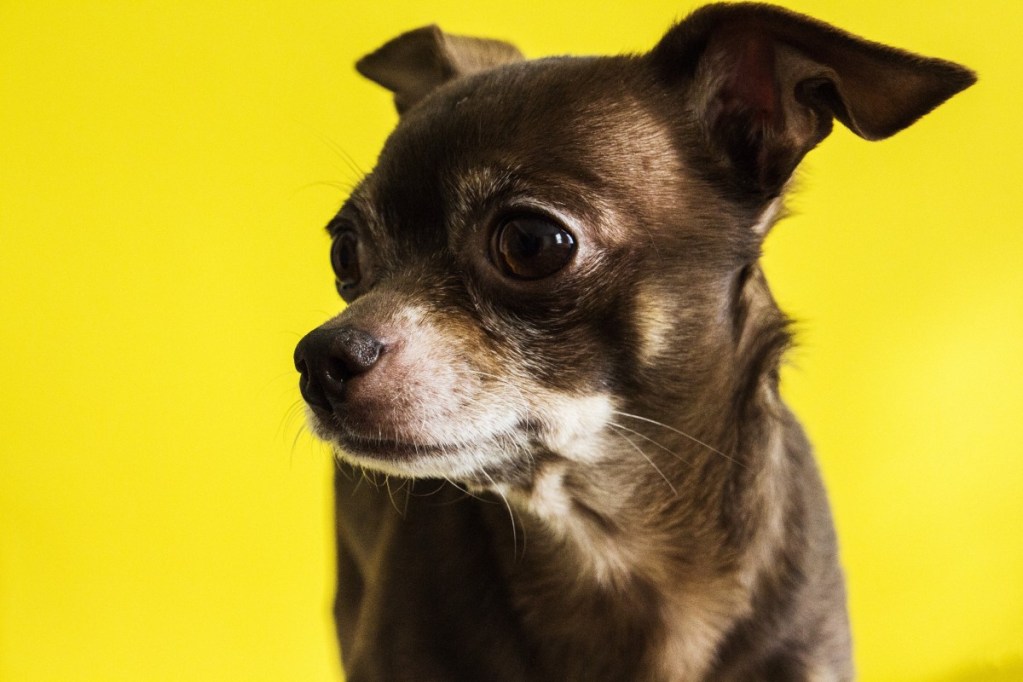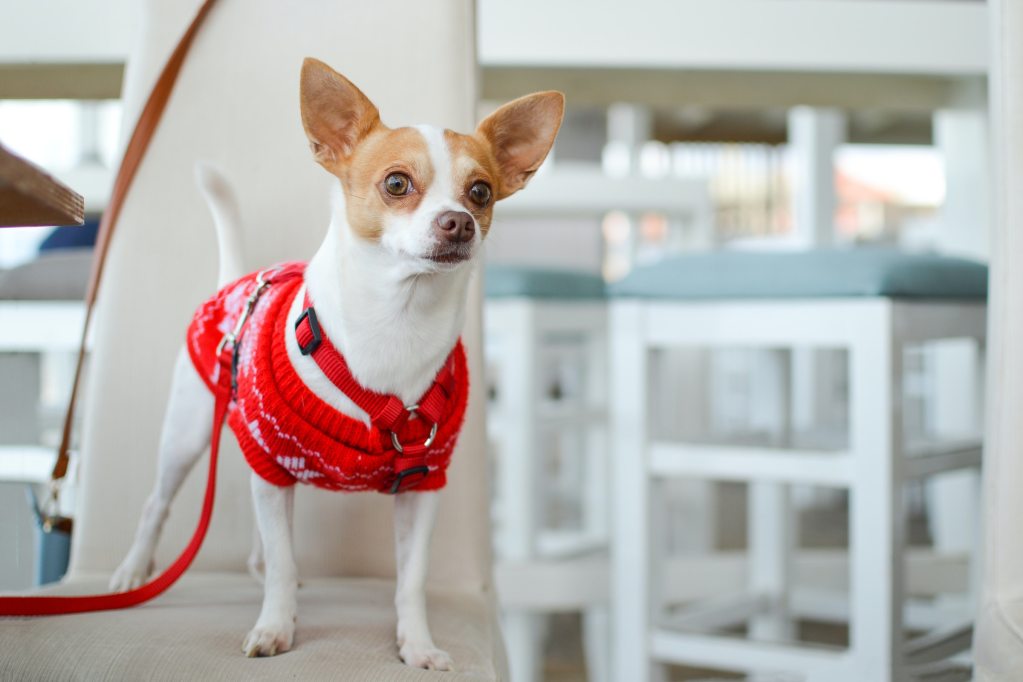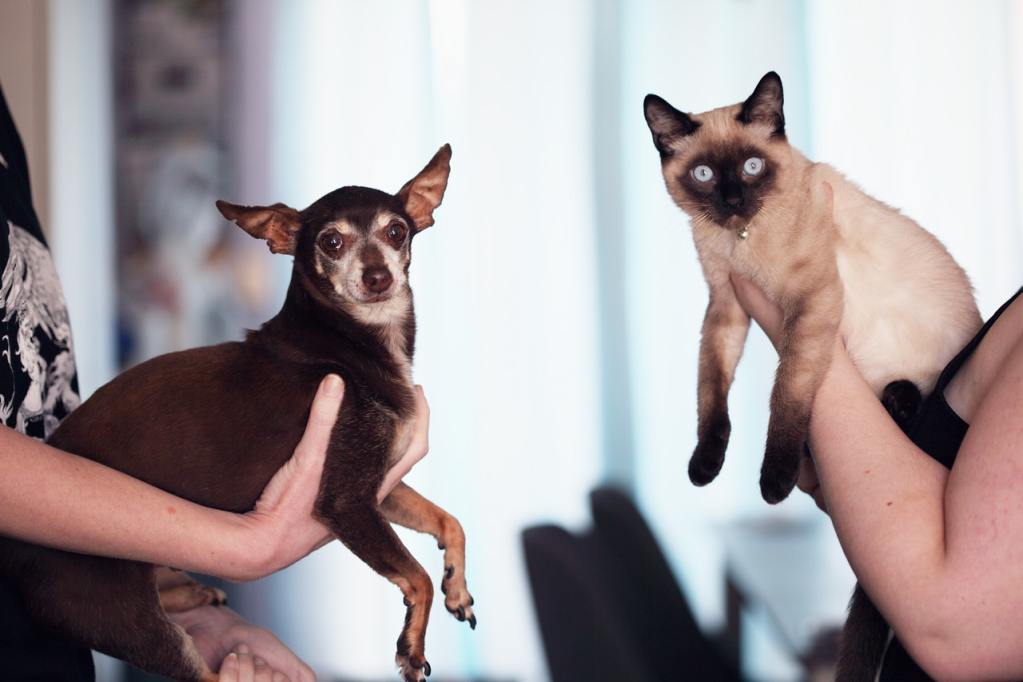Small in stature, Chihuahuas go big on personality. Some have a Napoleon complex — they totally think they can take on the mail carrier, and they will threaten to do so. Purebred Chihuahuas don’t exceed 6 pounds, so their valiant efforts can be more comedic than anything.
Anyone who has cared for a Chihuahua knows that these protective tendencies are often done in honor of their favorite person. Chihuahuas often get close to one human and want to snuggle, play with, and protect them.
Even people who can’t claim to be a Chihuahua’s favorite can get a kick out of these charming little dogs. They have a proud stance and extra pep in their step when they walk down the street. In short, Chihuahuas can be a great breed. However, there are also a ton of Chihuahua myths out there. We’re debunking them and giving you straight Chihuahua facts.

Myth 1: Chihuahuas don’t need much exercise
This statement is one of the biggest Chihuahua myths. Though the breed is small, Chihuahuas are full of energy and need stimulation. Any dog can become overweight, and Chihuahuas are particularly prone to obesity. Physical activity is one way to keep your Chihuahua healthy. While they don’t need as much physical activity as a larger breed, such as a Labrador Retriever, they need frequent exercise. About 30 minutes of walking and playing per day should do, and it’s a great way to bond. Some dogs may need more or less, depending on their age and overall health. Talk to your vet.

Myth 2: Chihuahuas are aggressive
We talked about the Napoleon complex, and the breed indeed has guard dog tendencies. That said, there’s a difference between “guard dog” and “aggression.” As a breed, Chihuahuas are not aggressive, but any dog can display aggressive tendencies. Signs of an aggressive dog include barking, erect ears, growling, and snapping. Aggression has several causes, including fear, illness, and prior neglect. If you notice aggressive behaviors in your specific dog, speak with a vet and potentially a behavioral specialist. They may be able to help you and your pet.

Myth 3: Chihuahuas shouldn’t wear leashes
Chihuahuas are so small they seem harmless. Moreover, the breed is prone to collapsed tracheas. Pulling on a leash can cause a Chihuahuas to wheeze, which can be hard for a pet parent to watch. Still, it’s essential to leash your Chi for their safety. It will prevent them from getting into a scuffle with another animal or human and protect them from running into the road and getting hit by a car. A harness may help prevent wheezing, and training the dog to “heel” will nix pulling.

Myth 4: Chihuahuas are perfect for small children
Small dogs and young kids go together like peanut butter and jelly, right? Not always. Chihuahuas aren’t known for being the optimal first best friend for a little kid. A tiny, wobbly toddler can feel like a threat to an even smaller Chi. That doesn’t mean Chihuahuas and children can’t share a home, but you’ll want to work with both on respecting one another. It’s important to watch every interaction. Even sweet pets and kids can make mistakes. If you’re adopting, a shelter or rescue can tell you if the Chihuahua would be a good fit for your family.

Myth 5: Chihuahuas don’t get along with other pets ever
Some breeds, like Labs, typically get along swimmingly with other pets. It’s hit or miss with a Chihuahua. A shelter or rescue can let you know if the Chihuahua you are interested in has been dog or cat-tested. If you have a Chi and are looking to welcome a new pet into your home, you can schedule an interaction between the two to make sure it’s a good fit.
Chihuahuas are a fun, sassy breed and can make perfect pets. However, it’s important to get your Chihuahua facts straight before welcoming one into your home. This breed requires a ton of stimulation, including physical activity. Exercise can help keep your dog healthy and prevent a condition Chihuahuas are prone to: Obesity. Chihuahuas are not necessarily aggressive, but they are protective. Leashes keep them safe, sound, and close to you. Some Chihuahuas get along with children and other animals while others don’t. Discuss the specific Chihuahua you would like to adopt with a shelter, rescue, or reputable breeder. They’ll have insights on what type of home would be best for the pet.
Editors' Recommendations
- Where to put a dog crate in your house depends on these important factors
- Why do dogs sleep under the covers? It all comes down to nature
- Why is my dog whining? 6 common reasons and what you can do to stop it
- Looking for a fluffy and affectionate pup? Give the American Eskimo dog a try
- All about the incredible greyhound dog




